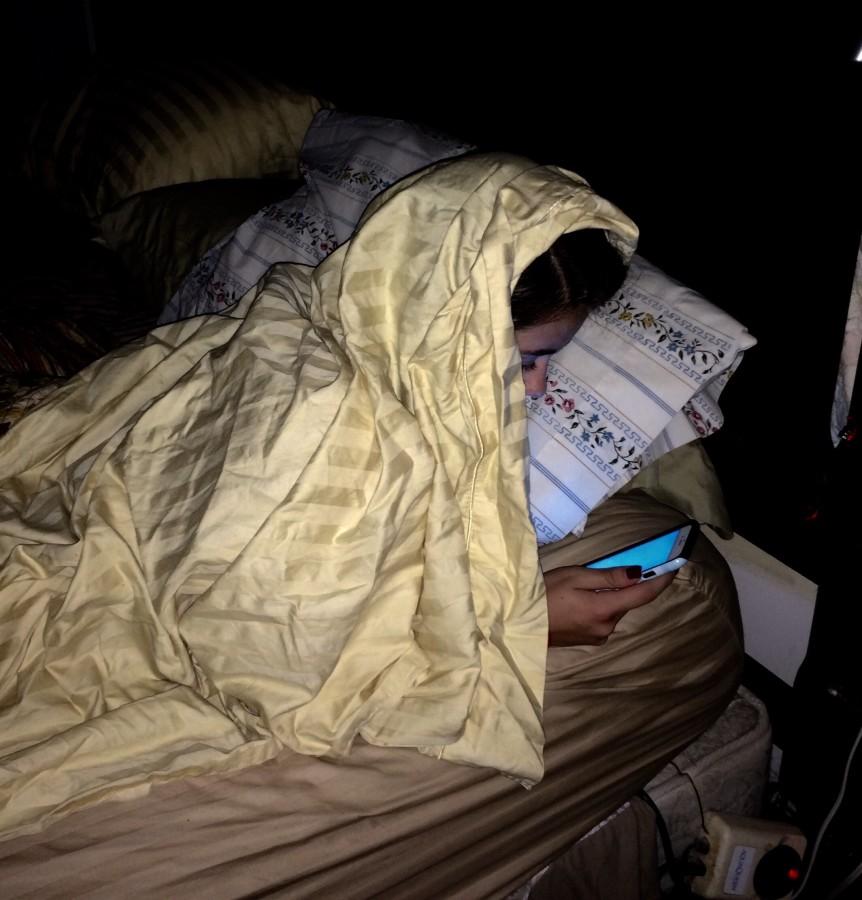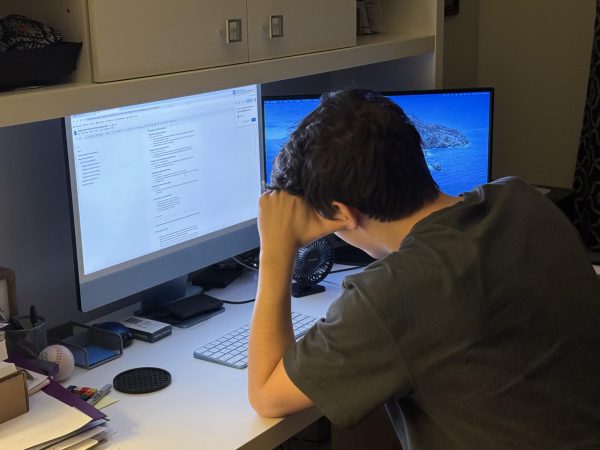Is your phone affecting your schoolwork?
September 17, 2015
We all love being on our phones, especially at night. However, the amount of time spent on smartphones can negatively affect ability to learn and quality of work.
Being on a smartphone at night is essentially like using a laptop. According to Business Insider, smartphones project a blue light, which suppresses melatonin production. Melatonin is a chemical that helps people sleep.
Class of 2019 member Matthew Gelhard says he looks at his phone right before he goes to bed. “[I go to bed when] I’m either too tired to do anything else or stop worrying about my phone.” He may be sacrificing more solid sleep habits.
Smartphones also increase the activity of the brain, and the act of playing a game or even sending a text can make the user tense up. As a result, cortisol is released from the adrenal glands and counteracts attempts to sleep.
A study from The National Institutes of Health found that sleep deprivation can eliminate almost all of the benefits of a healthy diet and exercise. Surprisingly, sleep deprivation is defined as getting less than seven hours of sleep.
In the long run, inadequate sleep can lead to learning and memory problems. This can affect students and their ability to learn and concentrate.
According to the Huffington Post, students who had their phones further from them or didn’t use them at all at night went to bed much earlier than those who slept with their phones right next to them and used them in bed.
Class of 2019 member Kelsey Wiegand said, “I feel tired [in the morning] when I use my phone the night before.”
Are you willing to give up looking at your phone before bed so you can concentrate better?













